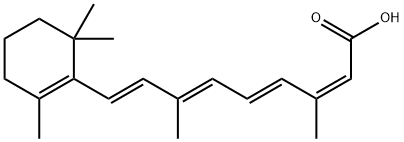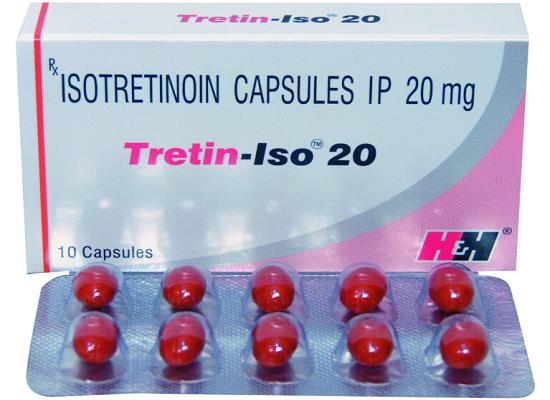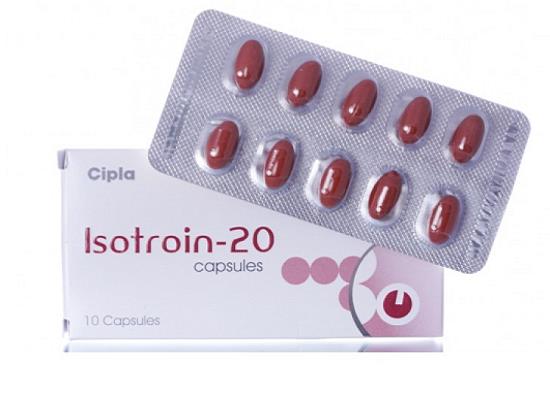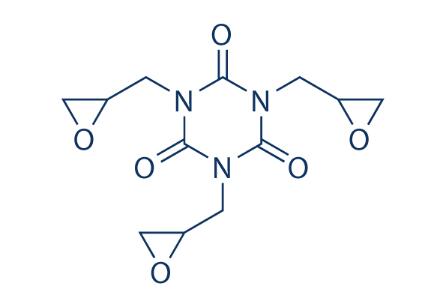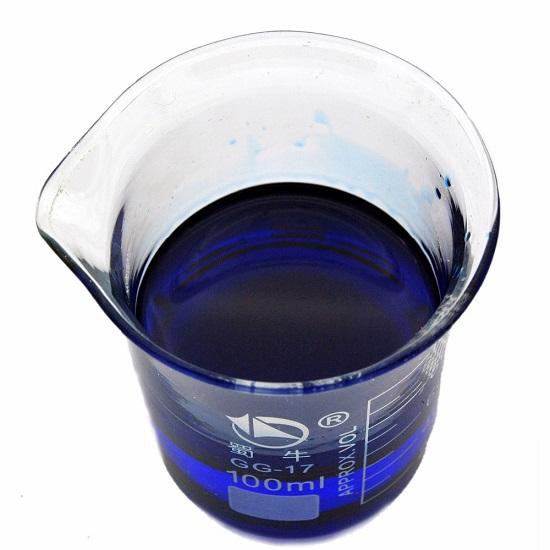Side effects of Isotretinoin
The original patent for Accutane expired in 2002. Held by
Hoffmann-LaRoche until that time, it is perhaps now better
known by its common name, isotretinoin, although over 100
trade names for the compound now exist. Isotretinoin was
originally developed to treat cystic acne, and today this is still
its primary use despite several more modern applications of
the drug, including a treatment for pancreatic and brain
cancers.
Isotretinoin is the 9-cis isomer of retinoic acid, a close
relative of retinol, or vitamin A. First shown to be an effective
treatment for acne in 1982, its development stemmed from
advances in knowledge of the effects of vitamin A to reduce or
eliminate sebum production. Since that time, however, several
instances of deleterious effects became well known, most
notably birth defects arising from the use of isotretinoin.
Accutane was removed from distribution by Roche in 2009
after several lawsuits had been filed alleging damages due to
side effects, especially in young adult males due to inflammatory
bowel disease (IBD).
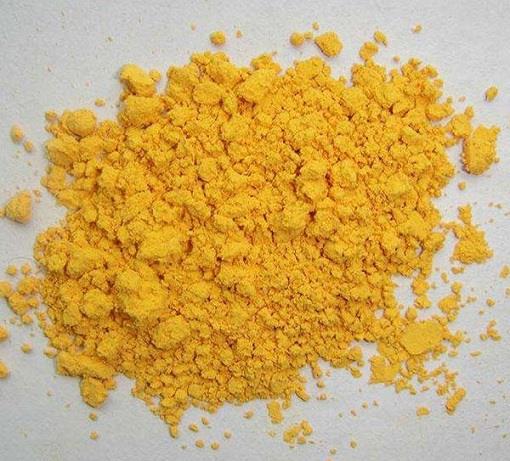
Use
The primary use of Accutane (isotretinoin) was the treatment of acne. Its use as an acne treatment is generally limited to severe cases where lesions are at least 5mm in diameter and appear suppurative or hemorrhagic, or for inflammatory acne and acne conglobata. Less severe acne may be treated with isotretinoin if the patient has a history of dyspigmentation or scarring due to acne. Isotretinoin is generally a last course of treatment in these cases after all other routes have been explored.
Additional uses for Accutane (isotretinoin) include treatments for keratinization such as lamellar ichthyosis, and keratosis follicularis (Darier’s disease) in addition to palmoplantar keratoderma and pityriasis rubra pilaris. It is also an effective treatment for severe rosacea and gram-negative folliculitis, and to treat hidradenitis suppurative.
Interestingly, isotretinoin has been shown to significantly reduce inflammation associated with adjuvant arthritis in rats, although this has not been verified to be the case in humans.
Mechanism of Toxicity
Direct studies focused on the environmental fate of Accutane (isotretinoin) are rare in the literature. The pure compound is insoluble in water, and highly lipophilic. Powders do not aerosolize readily, and volatilization is extremely low. Isotretinoin released into the environment would not be expected to have high mobility in water or soil, and will most likely become deposited in organic materials.
Bioaccumulation is possible, but isotretinoin is readily oxidized to form other retinoids or metabolites that are expected to be mitigated via natural biological pathways.
Side effects
Isotretinoin may cause side effects. Tell your doctor if any of these symptoms are severe or do not go away:
red, cracked, and sore lips
dry skin, eyes, mouth, or nose
nosebleeds
changes in skin color
peeling skin on the palms of the hands and soles of the feet
changes in the nails
slowed healing of cuts or sores
bleeding or swollen gums
hair loss or unwanted hair growth
sweating
flushing
voice changes
tiredness
cold symptoms
Some side effects can be serious. If you experience any of the following symptoms or those listed in the IMPORTANT WARNING or SPECIAL PRECAUTIONS sections, stop taking isotretinoin and call your doctor or get emergency medical treatment immediately:
headache
blurred vision
dizziness
nausea
vomiting
seizures
slow or difficult speech
weakness or numbness of one part or side of the body
stomach pain
chest pain
difficulty swallowing or pain when swallowing
new or worsening heartburn
diarrhea
rectal bleeding
yellowing of the skin or eyes
dark colored urine
back, bone, joint or muscle pain
muscle weakness
difficulty hearing
ringing in the ears
vision problems
painful or constant dryness of the eyes
unusual thirst
frequent urination
trouble breathing
fainting
fast or pounding heartbeat
red, swollen, itchy, or teary eyes
fever
rash
peeling or blistering skin, especially on the legs, arms, or face
sores in the mouth, throat, nose, or eyes
red patches or bruises on the legs
swelling of the eyes, face, lips, tongue, throat, arms, hands, feet, ankles, or lower legs
difficulty swallowing or pain when swallowing
Isotretinoin may cause the bones to stop growing too soon in teenagers. Talk to your child's doctor about the risks of giving this medication to your child.
Isotretinoin may cause other side effects. Call your doctor if you have any unusual problems while taking this medication.
);You may like
Related articles And Qustion
Lastest Price from Isotretinoin manufacturers
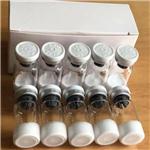
US $30.00/Box2024-04-23
- CAS:
- 4759-48-2
- Min. Order:
- 1Box
- Purity:
- 99.99%
- Supply Ability:
- 10000000000
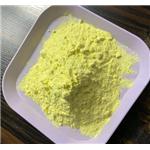
US $660.00-650.00/kilograms2024-04-23
- CAS:
- 4759-48-2
- Min. Order:
- 100kilograms
- Purity:
- 99%
- Supply Ability:
- 100tons
